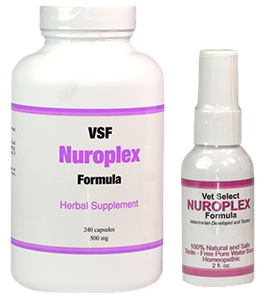Pet owners cannot assume all household products are safe for use. Not only are many common cleaners toxic to humans, they are actually more harmful to our pets. Factors like curiosity, higher metabolism and closer proximity contribute to higher exposure for animals. Here is a list of household products and their chemical ingredients to watch out for.
Flea Control and Pet Shampoo Products – Any flea repellent product containing the chemical d’Limonene can be considered harmful to cats, as well as Tea Tree and Pennyroyal essential oils. Many pet shampoos can be found to contain the chemical formaldehyde.
Outdoor Products – Products often used for fertilizing lawns containing 2,4-D herbicide should be avoided as well as the chemical metaldehyde, which is used in many herbicide and insecticide products. De-icing salts containing sodium chloride should also be avoided.
Household cleaners – Many oven, glass and stainless steel cleaners contain ammonia. You can find chlorine in most disinfectants, bathroom cleaners and dishwashing detergents, even laundry detergents. Glycol ethers, also toxic to animals, can be found in glass cleaners, carpet cleaners and spot removal products. Formaldehyde is also used in soaps and cleaners. Using floor cleaning products such as Pine Sol creates toxic exposure from lasting vapors.
Home Furnishings – The chemical formaldehyde can be found throughout the home in some construction materials, laminate flooring, wood paneling and any item made of particleboard, plywood or medium density fiberboard. It can also be found in new fabrics, such as clothing and bedding.
Drain Openers – Although the products is not used on any open surface in the home, the toxic emissions left over after use can be harmful to your pet.
Mothballs – Mothball fumes are toxic to animals and ingestion causes poisoning. The chemicals to look out for are naphthalene or paradichlorobenzene.
The best way to avoid exposing your pet to these chemicals is to use non-toxic alternatives. Always make sure any products mentioned are safely stored. Avoid using products when you animal is in the area and always make sure to ventilate your home post-use.
![photo[2]](http://allergicpet.files.wordpress.com/2014/07/photo2.jpg)

